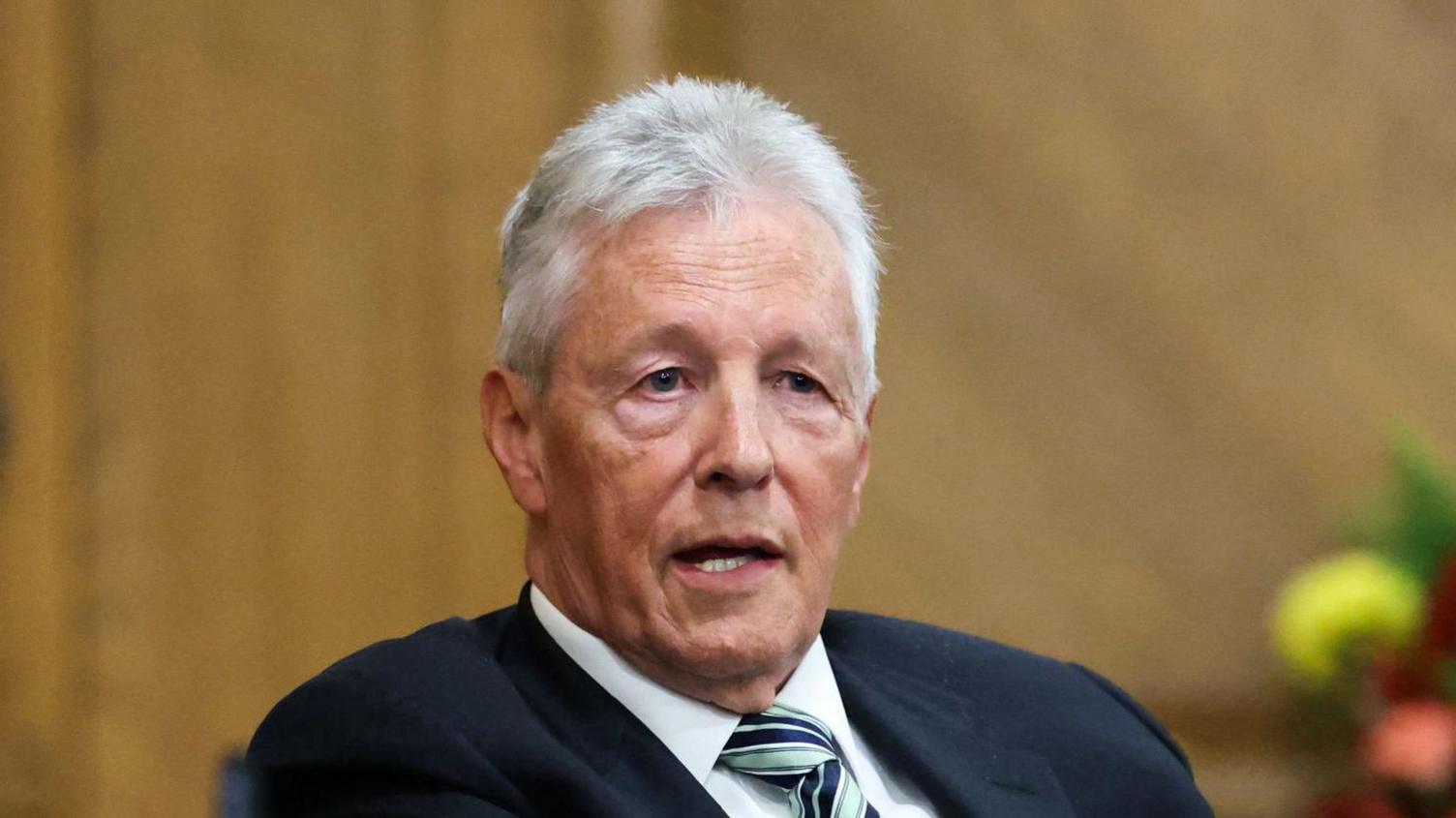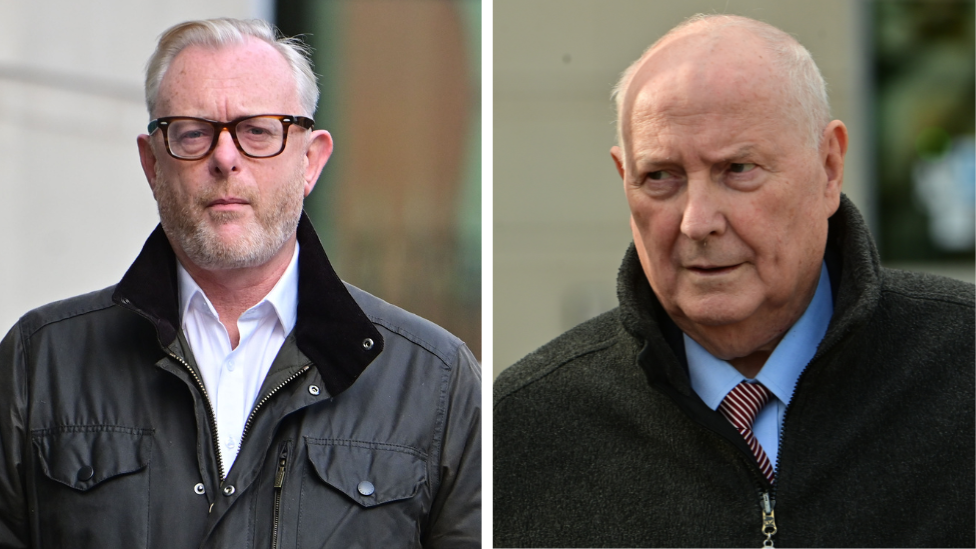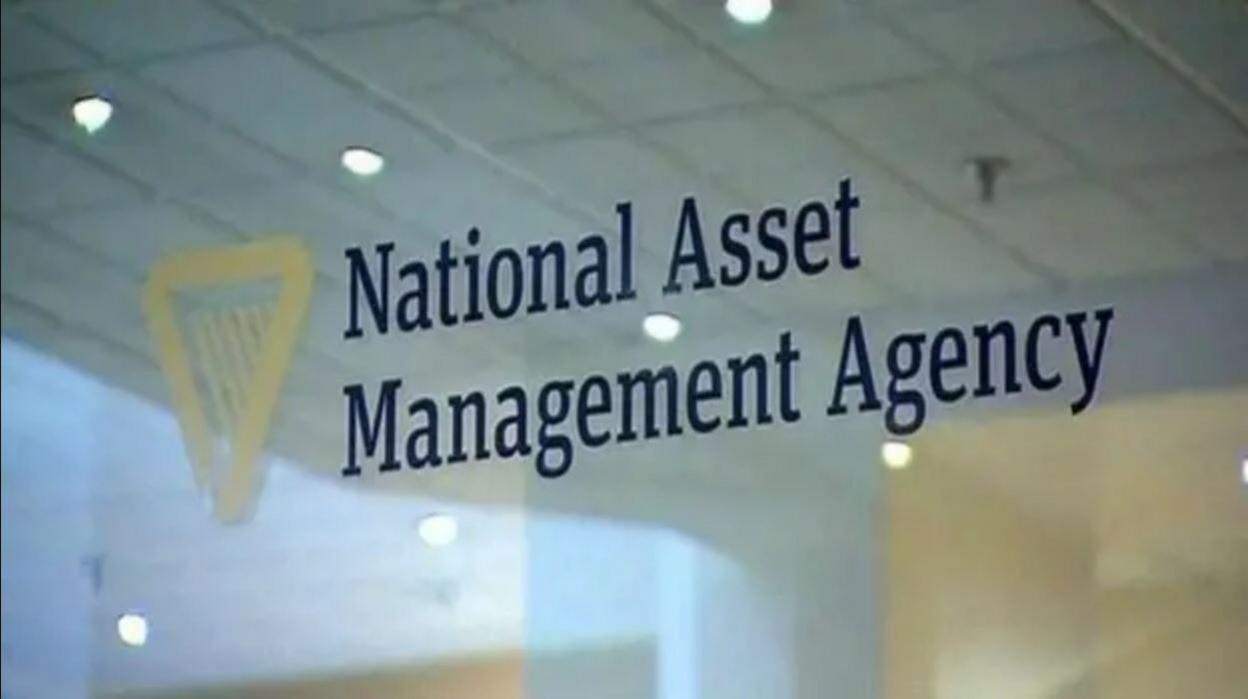No evidence former FM benefitted from £1bn Nama deal, jury hears

Peter Robinson was Northern Ireland's first minister during the Nama deal
- Published
The trial of two men facing fraud charges linked to a £1.1bn property deal has been told there is no evidence to suggest former Northern Ireland first minister Peter Robinson benefitted from the sale.
The jury was told Mr Robinson is mentioned in a secret recording involving one of the accused.
The case centres on the sale of a loan book held by Ireland's National Asset Management Agency (Nama) more than 10 years ago.
A prosecution barrister told the court there is "not a shred of evidence" that the then first minister received money as part of the deal.

Ian Coulter (left) and Frank Cushnahan (right), pictured on Monday, have denied the charges
The prosecution said the secret recording was of a conversation involving one of the men on trial, Belfast businessman Frank Cushnahan, and a property developer in 2013.
The jury was shown a written transcript of part of the conversation and told they would hear the recording later in the trial.
During the exchange, the prosecution said Mr Cushnahan gave away "insider information" about the proposed £1.1bn deal, and talked about making a substantial personal gain.
The court was told he also discussed how he had contact with some leading politicians, including Peter Robinson.
However, it was stressed to the jury by Jonathan Kinnear KC that "there is not a shred of evidence that Mr Robinson or anyone else received money from this deal".
Mr Cushnahan, 83, from Alexandra Gate, Holywood, County Down denies two fraud charges.

Nama was set up by the Irish government to deal with toxic property loans after Ireland's banking crisis in 2008
Also on trial is Ian Coulter who used to be the managing partner at Belfast-based Tughans law firm but now works for a different company.
Mr Coulter, 54, from Templepatrick Road in Ballyclare, County Antrim, is facing five charges, including fraud, which he denies.
Crown barrister Jonathan Kinnear KC has spent the past three days outlining the prosecution's case against the two accused.
Focusing on Mr Cushnahan, he said he had acted improperly during the proposed £1.1bn property deal by working with a potential buyer as well as the seller.
Mr Cushnahan worked as an adviser to Nama, on its Northern Ireland advisory committee, from 2010 to 2013, after being appointed to the role by Stormont.
The prosecution said that during the latter part of this period he was advising an investment firm called PIMCO which was interested in buying the Northern Ireland loan book from Nama.
Mr Kinnear told the jury the deal fell through when Nama discovered the "bombshell" news in March 2014 that Mr Cushnahan had been privately talking to PIMCO.
The barrister said he should have declared an interest when the potential sale was discussed at Nama meetings but he failed to do so.
What is Nama?
Nama is the Republic of Ireland's "bad bank", set up to deal with toxic loans after the 2008 property crash. It was established by the Irish government in 2009.
It was responsible for recovering the value of problematic loans made by other Irish banks.
The agency bought these loans (land and property and associated loans) at a discount and sold them to the highest bidder, which would have been a developer/ investment firm.
Nama had previously paid about £1.1bn to Irish banks for the Northern Ireland loans, that were worth about £4bn.
The Northern Ireland loan book was packaged into one portfolio, to be sold in one lump. That portfolio was called Project Eagle.
The 12-member jury, made up of nine men and three women, was sworn in last week.
The trial is expected to last up to three months.
Both of the accused deny all of the charges against them.